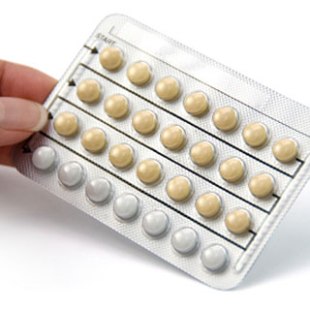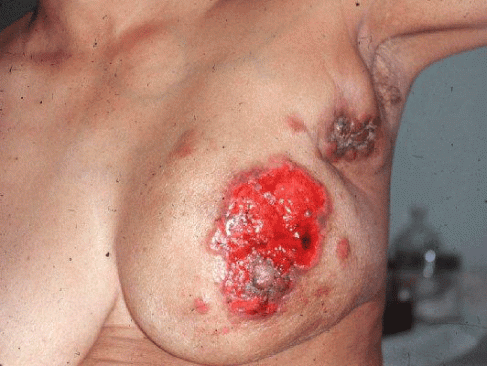
Birth Control Pills (Image courtesy of © iStockPhoto / Ceneri)
When I once said that nuns and single women who do not intend to get pregnant would benefit from taking contraceptive pills, one anti-RH Bill reacted saying “that is hysterical!” I didn’t think HYSTERICAL was even the appropriate word to say, even if she wanted to express disgust based on her knackered beliefs.
Let us put it that a woman has her first menstruation (called menarche) at age 15 years of age, and menopauses at 45 years of age. Granting she has a regular monthly menstrual cycle, that would make her mens 12 times a year. If she will have 30 years of reproductive age, then that would mean, she will have 360 menses in her lifetime. (Although realistically, nowadays, some girls already start menstruating at 9 years of age. To give you an idea when to expect the girl will mens for the first time, note at how old she is when her breasts start to enlarge — termed medically as thelarche. Approximately two years after that, she will now start her menstruation.)
During a woman’s menstruation, there is interplay between estrogen and progesterone. During the first day until day 14 of a woman’s menstrual cycle, ESTROGEN predominates especially on the day just before ovulation. The latter is responsible to prepare the uterus for an incoming pregnancy as well as ovulation in concert with other hormones; it’s level declines once the ovary has released an ovum. Once ovulation occurs, the corpus luteum (the cells surrounding the ovum in the ovary) release PROGESTERONE. The latter on the other hand ensures that the reproductive organs are optimum for a pregnancy to proceed.
PREGNANCY AND ITS EFFECT ON ESTROGEN ELEVATION
I have emphasized in my other blogs the role of progesterone as the hormone responsible for keeping the pregnancy intact. While estrogen may still be produced during pregnancy (as estriol), its potency is a lot weaker than the estrogen produced during non-pregnancy state (estradiol).
If woman gets pregnant for 9 months, the effect of progesterone is greater than the effect of estrogen. Even if estrogen is also produced during pregnancy as estriol, its effect to other organs such as ovary and uterus is dampened to nil. Thus, in cases where the woman is able to carry her pregnancy to full term, that would save her 9 months from the potent effects of estradiol to her body. If she will exclusively breastfeed (no breastmilk substitute whatsoever is given to the baby) after giving birth as well, this will have the effect of LACTATION-INDUCED AMENORRHEA (woman’s menstrual cycle remain arrested as effect of exclusively breastfeeding her baby) for about 6 months. Thus, one pregnancy will save the woman at least 15 months free from effects of elevated estrogen (estradiol) level. If in her lifetime, a woman will bear 4 children, all of which were term pregnancies, then she will have a total of (15 x 4) 60 menstruation free months in her lifetime. This means, she is on the advantage of 300 months exposure only, compared to women who never got pregnant, who are exposed to the potent effects of estradiol for 360 months.
EFFECT OF UNOPPOSED ESTROGEN ELEVATION
What effect does estrogen have to a woman? Most commonly discussed effects of unopposed estrogen elevation would range from benign (leiomyoma, or myoma of the uterus) to malignant such as cancer of the uterus, ovary, and breast, among other else.
Cancer
It has been established that most cancers are mainly genetic (meaning, inheritance of cancer genes from either side of the parents). But aside from the genes for expression of cancers, there are also genes for cancer suppression that comes along with its inheritance. Whichever of these genes predominates, that is what is manifested clinically or physically or biochemically or physiologically by the person involved. If a person has breast cancer gene, and the gene for its suppression is muted or ineffective, then the person will have breast cancer manifestations. On the other hand, if the person has breast cancer genes, but his cancer suppression genes are enhanced and working effectively, then the person will not show signs of breast cancer, but still at risk and will readily convert once those cancer suppression genes are skewed. (Confused? hahaha). These cancer suppression/expression genes are regulated by the environmental factors to which the person is exposed to. In the case of breast cancer, one environmental factor is elevated estrogen (estradiol) level.
Estrogen naturally exists in 3 forms in women. The ovary produces (1) estradiol, the most potent form of estrogen, and this is the form usually seen elevated among nonpregnant women during the reproductive age group. This is believed to be the most potent of the three forms. Another form of estrogen is produced during pregnancy is (2) estriol; this has been noted to be the a lot weaker in comparison to potency of estradiol. Another form of estrogen is found among menopausal women, (3) estrone. During the reproductive age group, estrogen is produced by complex enzymatic process at the ovary. Postmenopausally, estrone is converted peripherally at the liver, adrenal glands, breast and fat tissues.
If a person has inherited the breast cancer genes, and keeps on being exposed to elevated estradiol, then she can develop breast cancer, especially if her breast tissue also has the hormone receptors for estrogen. These receptors will bind with the circulating estrogen and thus bring about the genesis of cancer. Between non-pregnant woman (who has 360 times of exposure) and a woman who got pregnant for four times (who only has 300 times of exposure), it is the former who is more susceptible. This only goes to show that even if the woman never took exogenous sources of estrogen (such as oral contraceptive pills), they can still have breast cancer. (I previously blogged a colleague who was single and died at the age of 42 from breast cancer. She too was not taking contraceptive pills — The Pain She Should Never Have.
DO CONTRACEPTIVES OFFER ANTI-CANCER BENEFIT TO WOMEN?
Contraceptive pills contain synthetic progesterone alone or in combination with estrogen. Among its many benefits, the effect in focus is its role in suppressing ovulation. With a sustained elevated level of progesterone from religious intake of contraceptive pills or injectable hormones, this suppresses elevation of estradiol (which leads to ovulation). With lesser if not complete non-exposure of the reproductive organs to estradiol, nothing will stimulate the cancer expression genes and therefore no cancer formation. Of course this is NOT always absolute and there are always exceptions, but these exceptions are often minimal compared to those who will benefit from the treatment.
A meta-analysis on the effect of oral contraceptive pills among women who had genetic mutations (BRCA1/2) for expression of ovarian cancers have shown that oral contraceptives reduce the risk for ovarian cancers, proportional to the length of use. The same meta-analysis also stated that OC formulations used before 1975 were associated with a significant increased risk of breast cancer (SRR: 1.47; 95% 1.06, 2.04), but no evidence of a significant association was found with use of more recent formulations (SRR: 1.17; 95% 0.74, 1.86). (highlights were mine). (Reference: Oral contraceptive use and breast or ovarian cancer risk in BRCA1/2 carriers: A meta-analysis.S. Iodice, M. Barile, N. Rotmensz, I. Feroce, B. Bonanni, P. Radice, L. Bernard, P. Maisonneuve, S. Gandini. European Journal of Cancer, Volume 46, Issue 12, August 2010, Pages 2275-2284).
Do women ought to take contraceptive pills, even if they are not married?


